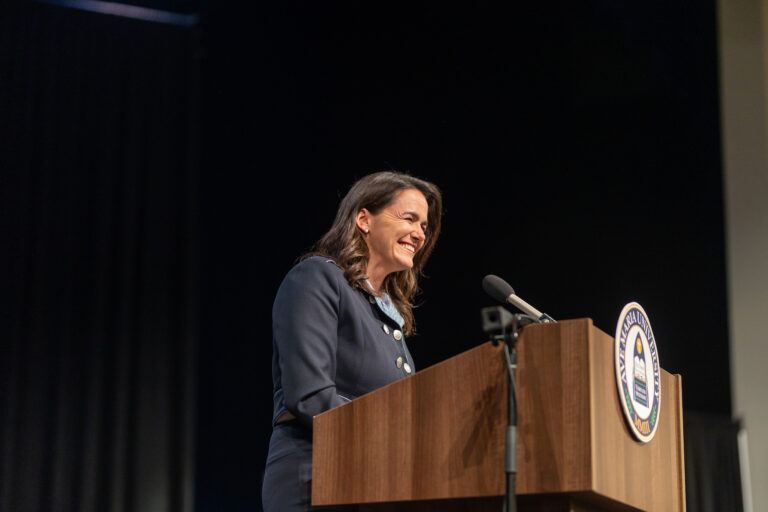On February 27, 2002, Nicholas Eberstadt testified before the U.S. Senate Committee on Foreign Relations, on why UNFPA should not be funded by the U.S. government. The transcript of his testimony follows.
Madame Chairman, I thought that I might best use my time this afternoon to provide a little bit of background on UNFPA. The U.N. Population Fund, UNFPA, is a runaway agency, an institution that has been hijacked, diverted from its original mission, and subsequently infused with a radical and ambitious demographic ideology.
The Present vs. the Past
If one takes a look back at earlier documents of the UNFPA, this is what one reads. For example, in its 1975 annual report it says:
Serious warnings have been issued from time to time in the population situation, but the fund has advisedly avoided making apocalyptic statements since that would be contrary to its mandate to influence government decisions in any way.
Today, by contrast, the UNFPA speaks of its mandate for promoting what it calls a universally acceptable goal of stabilizing world population. Now stabilizing world population is code language. And it is also a bit of a misnomer. Russia’s population, for example, is declining by about 1 million people a year due to the excessive deaths over births. But UNFPA does not indicate any great interest in stabilizing Russia’s population decline.
Instead, stabilizing world population or stabilizing population means depressing birth rates worldwide, or, as the former executive director of UNFPA put it, “achieving the lowest level of population in the very shortest time.”
That objective, by the way, is shared by current executive director of UNFPA, Dr. Obaid. She was quoted this month during a visit to Pakistan as saying, “Yes, Pakistan has been doing well to slash its population growth rate, but it still has more to do in this regard.” I think that is quite a fair exegesis of the self-directed mandate there.
Justifying UNFPA’s Anti-Natal Position
To justify this anti-natal posture, UNFPA has recently invoked, has repeatedly invoked, disaster and impending catastrophe, often against perceived scientific knowledge or through a very skewed and partisan reading of scientific data. And I will not go through chapter and verse, but I will read you a few headlines that the UNFPA has garnered over the years.
-
“The United Nations yesterday asked people everywhere to pause July 11 and contemplate the bleak future of Baby 5 Billion, the child whose birth will push the Earth’s population over the 5 billion mark.” (1987)
-
“Nutrition levels are dropping and infant mortality may once again be on the rise.” (1989)
-
“The world’s population is growing by three people every second. And unless this is curbed, most gains so far achieved and improving quality of life will be swept away,’ the U.N. Population Fund said today.”
-
“U.N. report warns of population ‘catastrophes.”’ And on and on and on.
-
From 2001, “U.N. says 4 billion will be living in hunger by the year 2050.” That is many times higher than the FAO would claim or project.
The UNFPA’s extreme view is disavowed even by other branches of the United Nations. Thus we hear from Joseph Chamie, the Director of the U.N. Secretary’s Population Division, “The UNFPA is a fund. They have an agenda,” Chamie said, distinguishing his word from theirs.
The UNFPA’s infatuation with coercive population control goes back at least to 1983. In that year, the UNFPA awarded its first population prizes, one to Indira Ghandi, the other to Chong Xian Jiong, who was with China’s State Family Planning Commission at that time.
Coercive Policies Are Ignored
Among impartial sources, outside sources at the time, there was no doubt, no disagreement, that China’s program was coercive. And in fact, the respected American Nobel Laureate Economist, Theodore W. Schultz, resigned in protest from the advisory commission, which was supposedly awarding these prizes, but had no actual say in granting them.
The tone deafness towards coercive population control of the UNFPA thus is really nothing new.
One or two extra points which I would submit for the record: There is a fungibility question. Funds to organizations can be used in different ways to advance their purposes. The UNFPA funds in support of China’s program can be used by that government to support its own priorities, just as ostensibly segregated U.S. funds to UNFPA will advance other priorities.
There is the human rights question, of course, which we have already touched on, and the abuses of China. And I guess I would also submit this in the form of a thought experiment. In many areas of the world, the appalling practice of female genital mutilation is implemented. What would we think if the UNFPA involved itself in a country where this practice was occurring with the argument that by improving the health quality of such procedures, women’s lives could be saved? I think we would not want to legitimize that practice. We would not want to ratify that practice. We would not want to go there.
Finally, Madame Chairman, let me say I have no doubt the UNFPA has supported very many worthy activities. An organization which has dispensed over $5 billion surely should have some achievements to claim. But the ideologizing of the leadership of UNFPA risks degrading the quality of the organizations work and of making that leadership insufficiently attentive to possible human rights abuses committed in the service of the agenda that it prefers.
Thank you.
Nicholas Eberstadt in the Henry Wendt Chair in Political Economy at the American Enterprise Institute and an expert on demographics and Asia.










